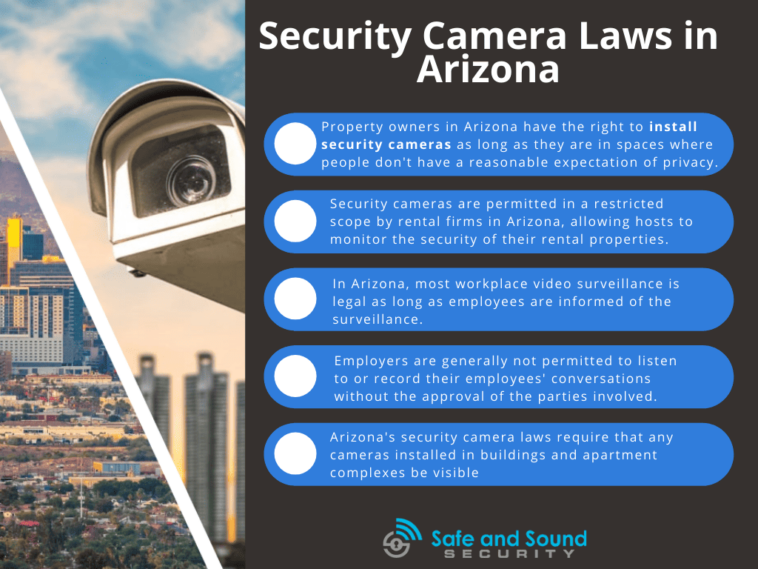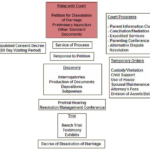 “`html
“`html
Understanding Arizona’s One-Party Consent Law for Recording Conversations
In today’s digital age, the legality of recording conversations is a topic of significant importance, particularly given the technology available to us. Arizona follows a specific legal framework when it comes to recording communications, classified as a one-party consent state. This editorial aims to dissect Arizona’s recording laws, the associated penalties for non-compliance, and the substantial impact these regulations have on both criminal and civil proceedings. Understanding these essential aspects is crucial for residents and legal practitioners, especially those handling sensitive matters.
Arizona’s One-Party Consent Law Explained
Arizona Revised Statutes (ARS) § 13-3005 defines Arizona as a one-party consent state. This means that in Arizona, it is legal to record a conversation if just one person involved consents to it. This law applies to a range of communication forms including in-person discussions, phone calls, and video conferences. The principle behind this statute is to ensure that privacy is respected while providing flexibility for individuals to document interactions where they have consent.
Legal Ramifications of Recording Without Consent
Recording a conversation without proper consent can lead to severe legal consequences. If found guilty of unlawful interception, individuals could face criminal charges. In Arizona, this offense could be classified as a Class 5 felony, which might carry penalties of up to 2.5 years in prison for a first-time offender, including probation and fines. In less severe cases, it could be downgraded to a Class 6 felony, perhaps resulting in up to 2 years in prison.
Civil and Additional Consequences
Beyond criminal penalties, individuals may face civil lawsuits for invasion of privacy. Civil liabilities might include claims for emotional distress, reputational damage, and financial losses, potentially leading to significant settlements. Furthermore, a conviction could have long-lasting impacts, such as enduring a criminal record, which could affect employment prospects, professional licensing, and immigration status.
Exceptions to Arizona’s Recording Laws
Law Enforcement and Public Conversations
Arizona’s recording laws do incorporate exceptions, particularly for law enforcement officials. Officers may lawfully record conversations under a valid warrant. Additionally, conversations occurring in public spaces, where no reasonable expectation of privacy exists, might not require consent. These exceptions serve to balance the need for privacy against public safety and transparency.
Workplace Monitoring by Employers
Employers often need to monitor communications within the workplace to ensure compliance with company policies or to manage disputes. This monitoring is permissible provided that employees are informed about these practices. Many organizations implement clear guidelines and obtain formal acknowledgements from employees regarding monitoring policies.
Impact of Recording Laws on Criminal Cases
Recording laws both challenge and support criminal cases. Evidence procured from improperly recorded conversations may be deemed inadmissible in court, posing challenges to law enforcement and attorneys. Defense lawyers frequently contest such evidence to safeguard their clients’ rights. Moreover, unauthorized recordings can violate Fourth Amendment protections, laying groundwork for motions to suppress evidence.
Legal Strategy and Protection
Experienced legal practitioners like Josh Kolsrud leverage these statutes to craft effective defense strategies. With a prolific career handling over 3,500 cases and more than 100 jury trials, Kolsrud’s approach reflects a deep understanding of how to apply Arizona’s recording laws effectively within the criminal justice system.
Frequently Asked Questions about Recording Conversations
Is it Legal to Record Conversations in Arizona?
Yes, as a one-party consent state, Arizona allows recording if one party is aware and consents to it. However, recording a conversation you are not part of or do not have permission from any party present is illegal.
Understanding ‘Reasonable Expectation of Privacy’
‘Reasonable expectation of privacy’ pertains to settings where individuals anticipate privacy, like homes or private offices. Recording in these environments without consent could result in legal actions, unlike in public spaces where such privacy is not anticipated.
Consequences of Illegal Recording
Illegal recordings can lead to severe legal repercussions, including fines, probation, and jail time. Civil suits for privacy invasion may also be pursued, emphasizing the importance of obtaining appropriate consent before recording.
Conclusion: Navigating Recording Laws
In conclusion, while technology simplifies the ability to record communications, it is imperative to stay informed about the legal constraints surrounding such activities. Arizona’s one-party consent law empowers individuals with some recording liberty; however, the associated responsibilities and potential legal consequences cannot be understated. Consulting with experienced criminal defense attorneys, such as Josh Kolsrud from Kolsrud Law, ensures compliance and safeguards against legal pitfalls. As these laws continue to evolve with technological advancements, ongoing awareness and understanding will be crucial for individuals and legal professionals alike.
“`
Originally Post From https://kolsrudlawoffices.com/record-conversation-without-consent-az/
Read more about this topic at
Is it legal to record conversations in Arizona? What the law …
Arizona Recording Law


